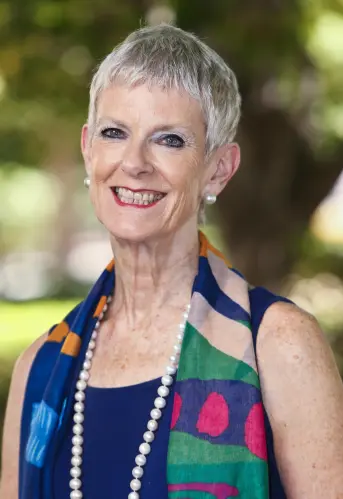Brookings Affiliation
Research Areas
-
Society & Culture
Sub-Topics
-
U.S. Government & Politics
Sub-Topics
-
China
Jamie Horsley is a nonresident senior fellow in the John L. Thornton China Center in the Foreign Policy program at Brookings. She is also a senior fellow at the Paul Tsai China Center and visiting lecturer in law at Yale Law School. Her project work and research revolve primarily around issues of governance and regulatory reform in China, including promoting government transparency, public participation in government decisionmaking, and mechanisms of government accountability, as well as touching on substantive areas ranging from food safety to civil society regulation to environmental governance. She was formerly executive director of the Yale China Law Center.
Horsley developed her interest in China as an anthropology major at Stanford University; she spent a year in Taipei, Taiwan studying advanced Mandarin while pursuing her master’s degree at the University of Michigan’s Center for Chinese Studies, and earned her Juris Doctor at Harvard Law School.
In 1981, Horsley moved to Beijing on behalf of the international law firm of Paul, Weiss, Rifkind, Wharton & Garrison to assist companies venturing into the newly opening China market and, after being named a partner, later helped manage that firm’s China practice from Hong Kong. Horsley subsequently served as commercial attaché in the U.S. Embassies in Beijing and Manila; vice president of Motorola International, Inc. and Motorola’s director of government relations for China; and a consultant to The Carter Center’s China Village Elections Project.
Horsley joined the Yale Law School China Law Center in 2002. From 2015 to 2016 she was a residential fellow of the Woodrow Wilson International Center for Scholars, and from September 2016 through August 2022, she was a visiting fellow in the John L. Thornton China Center in the Foreign Policy program at Brookings.
Horsley has authored numerous articles, portfolios and book chapters on topics relating to China’s legal and governance developments, including transparency, public participation and government accountability. Recent articles have discussed such issues as China’s Belt and Road Initiative, social credit system, the Chinese Communist Party and anti-corruption institutions, as well as a primer on Chinese law and regulation.
Horsley is frequently asked to speak on topics relating to Chinese law and governance at universities, law schools, U.S. government and state agencies, think tanks, world affairs councils, and other groups.
Affiliations:
Bar Associations of California and the District of Columbia, inactive member
National Committee on U.S.-China Relations, member, former director and human rights dialogue participant
-
Current Positions
- Senior Fellow, The Paul Tsai China Center
- Visiting Lecturer-in-Law, Yale Law School
-
Past Positions
- Fellow, The Woodrow Wilson International Center for Scholars (2015-2016)
- Executive Director, Yale Law School China Law Center (2002-2015)
- Consultant, China Village Election Project, The Carter Center (1999-2002)
- Vice President, Motorola International, Inc. & Corporate Director, Government Relations, China Motorola, Inc. (1995-1998)
- Commercial Attaché & First Secretary, U.S. Embassy Beijing, China (1993-1995)
- Commercial Attaché & First Secretary, U.S. Embassy Manila, The Philippines (1991-1993)
- Partner, Paul, Weiss, Rifkind, Wharton & Garrison, Washington, D.C. & Hong Kong (1986-1996)
- Associate Attorney, Paul, Weiss, Rifkind, Wharton & Garrison, Beijing, New York, Washington, D.C. (1981-1986)
- Associate Attorney, Brobeck, Phleger & Harrison, San Francisco (1978-1981)
-
Education
- J.D., Harvard Law School, 1978
- M.A., University of Michigan, 1975
- B.A., Stanford University, 1972
- Diploma in Chinese Law, University of East Asia, 1990
-
Languages
- Mandarin
